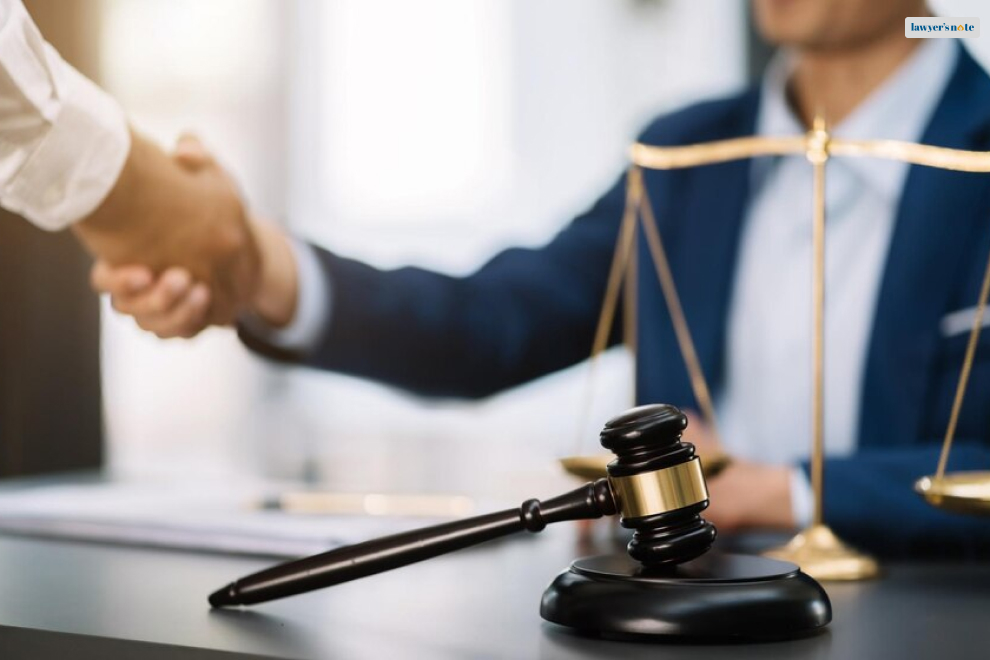Defense Lawyer In Gwinnett County: Expert Legal Representation
Navigating the legal landscape in Gwinnett County, Georgia, requires skilled guidance, especially when facing criminal charges. Our dedicated criminal defense....
1085 Views

Are you facing accusations or concerns about bank fraud? Wondering what a bank fraud attorney does and how they can help? A bank fraud lawyer specializes in cases involving alleged fraudulent activities related to banks or financial institutions.
Or, are you being accused of falsifying documents, identity theft, or fraudulent transactions with banks? Do you need guidance if you’re under investigation by law enforcement or facing charges for bank-related offenses? A bank fraud lawyer can assist you in understanding your rights. They can navigate legal procedures and build the perfect defense strategy.
Are you unsure about the implications or potential penalties of bank fraud accusations? There are legal consequences you might face. A bank fraud lawyer can provide clarity about the situation and offer advice on how to protect yourself.
They have skills in assessing evidence. Additionally, they negotiate with authorities and represent clients in court if the case goes to trial.
Hence, if you need someone to advocate for you and safeguard your rights throughout the legal process? A bank fraud attorney can support you. Thus, whether you’re dealing with federal investigations, court proceedings, or seeking to resolve bank fraud-related issues, they are here to help.
Therefore, their expertise can be invaluable in defending your case and aiming for the best possible outcome.

In this section we not only talk about qualifications of a bank fraud lawyer, we tell you how you could be one. Becoming a bank fraud lawyer in the USA involves several steps.
First, earn a bachelor’s degree in any field, focusing on subjects like criminal justice, pre-law, or finance to build a strong foundation. Next, attend law school and complete a Juris Doctor (J.D.) degree. Therefore, Law schools usually require the Law School Admission Test (LSAT) for admission.

During law school, take courses related to white-collar crime, financial law, and criminal law. Participate in internships or externships at law firms, government agencies, or legal organizations to gain practical experience in the field.
After graduating from law school, pass the bar exam in the state where you want to practice law. Each state has its own bar exam, and passing it is necessary to become a licensed attorney.
Additionally, consider specializing in criminal law or white-collar crime by pursuing further education or certification programs.
in experience by working at law firms that handle criminal defense or white-collar crime cases. Entry-level positions or associate roles in these firms can provide valuable experience and mentorship.
Develop strong analytical, research, and communication skills, which are crucial for success in this field. Therefore, they should keep up-to-date with changes in banking laws, financial regulations, and court rulings related to fraud.
Networking within the legal community is extremely important. Therefore, whether you are looking to be a lawyer or just looking for the perfect lawyer, this is important.
Thus, attending seminars, and joining professional organizations related to criminal law can help you establish connections. A good bank fraud attorney will stay updated on industry trends.
Continuing education through seminars, workshops, or specialized courses can enhance their knowledge and expertise in bank fraud law.
With dedication, relevant experience, and ongoing education, you can become a competent and successful bank fraud lawyer in the USA.

A bank fraud attorney helps individuals or businesses facing allegations of fraudulent activities in banking or financial transactions. Additionally, they also represent businesses facing issues. They provide legal guidance and representation throughout legal proceedings.
These attorneys investigate cases of suspected fraud. They review financial documents, transactions, and even the evidence to build a defense. Additionally, if you want to pursue legal action, they represent clients in court, arguing their case and defending their rights.
Bank fraud attorneys also negotiate on behalf of clients with financial institutions, regulatory bodies, or law enforcement agencies. Therefore, they aim to reach settlements or agreements that minimize penalties or legal consequences.
Additionally, they offer legal advice to prevent potential fraud issues, helping clients understand banking laws and regulations to avoid unintentional violations.
In some cases, a bank fraud attorney might collaborate with other legal specialists. For example, a workplace injury lawyer, to handle related legal matters, such as insurance claims or fraud incidents.
Additionally, they might also work with a mortgage attorney when fraud allegations involve mortgage-related transactions.
Overall, a bank fraud attorney’s role is to protect their clients’ interests. They have in-depth knowledge of laws, and provide legal support throughout the legal process. Thus, it may also involve defense against accusations or seeking justice for financial wrongdoing.

Hiring a bank fraud attorney’s cost can depend on case complexity and lawyer experience. Criminal defense attorneys bill between $150 to $700 hourly.
For such cases, expenses can surge rapidly, landing between $10,000 to $15,0002. Usually, attorneys on hourly rates seek a retainer fee2. Factors affecting costs include case intricacy, lawyer expertise, and location.
A case’s complexity, involving multiple transactions or entities, often escalates fees. Additionally, lawyer experience level, case urgency, and legal research intensiveness influence costs.
On the contrary, straightforward cases with limited complexities may result in lower fees. Attorney negotiation or alternative fee structures, like flat fees, can sometimes reduce costs.
When choosing a bank fraud attorney, caution is crucial. The selection impacts your case and financial well-being.
Research their experience, expertise, and success in similar cases. Beware of exceptionally high or low fees, ensuring clarity on billing and retainer terms.
Look for transparency in communication and a comprehensive understanding of your case. Verify the attorney’s credentials and reputation to gauge reliability. Remember, a well-chosen attorney with the right background can significantly impact the outcome.
Be cautious, as choosing a lawyer hastily might affect your case negatively. Just like when hiring a hostile work environment attorney, thorough consideration is key to a good legal representative.
Read Also:

Navigating the legal landscape in Gwinnett County, Georgia, requires skilled guidance, especially when facing criminal charges. Our dedicated criminal defense....

It can be rather stressful to be charged with first-degree burglary. In addition, serious repercussions could affect a person's life....

If you have been facing criminal charges in New York, you must have a federal criminal defense lawyer. Wondering why?....